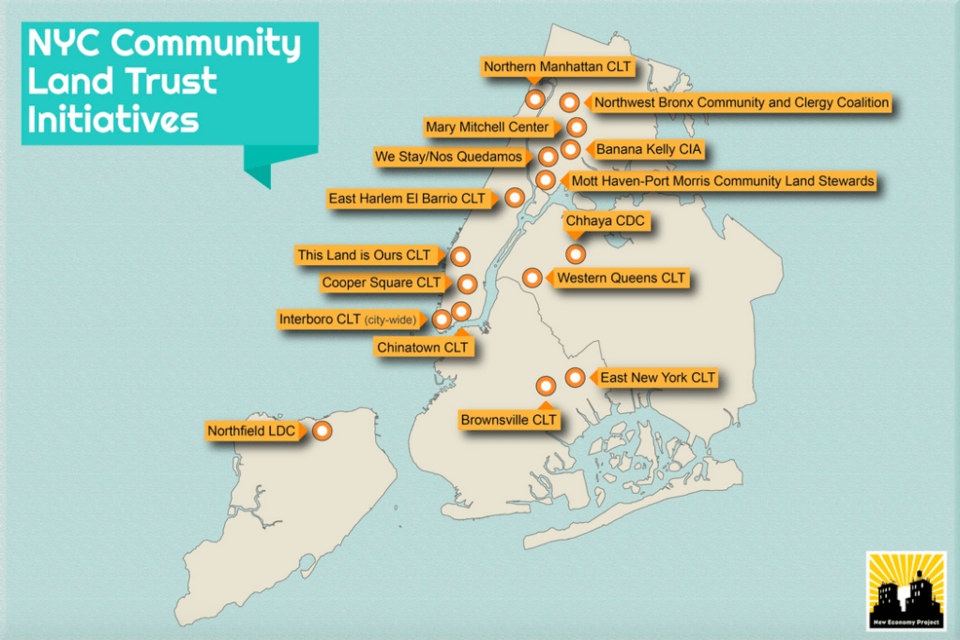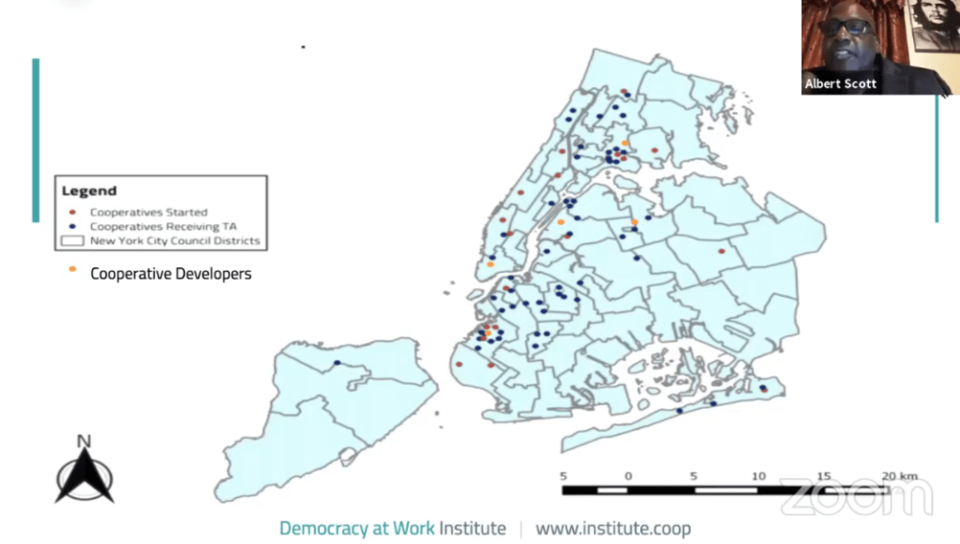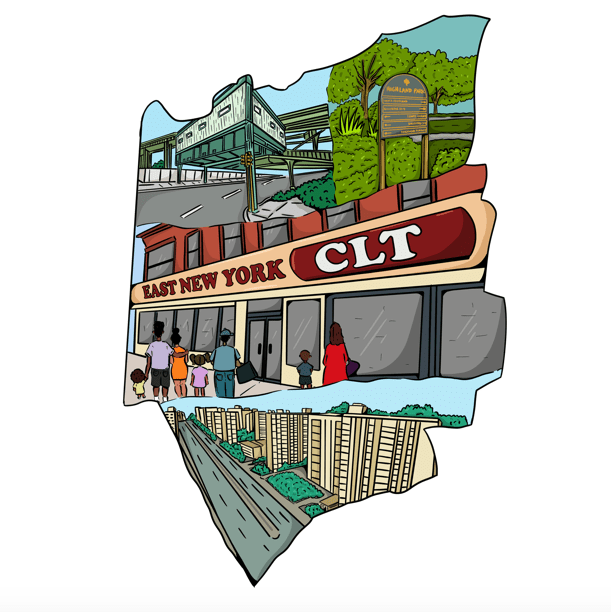For East New York local Albert Scott, the need for cooperative housing and economics is at an all time high in his community, which faced high levels of "predatory real estate activity" even before the pandemic, he said.
Scott, the president of East New York Community Land Trust (ENYCLT), sees community land trusts (CLT) as a way to achieve a more equitable quality of life in the city.
"It is so important in communities such as East New York and our neighbors out in Brownsville, that we utilize this tool...to address the housing injustices currently taking place, and the economic injustices as well," Scott said, adding CLTs were necessary to address the over-development that pushed out community residents.

On Thursday night, ENYCLT, a grassroots, community-controlled organization dedicated to taking ownership of land for the benefit of neighborhood residents, hosted a discussion to inform locals about the benefits of CLTs. It was part of the group's monthly, CLT 101 series, which aims to educate the public and spread awareness for their work.
A CLT is a nonprofit organization that disrupts the typical land ownership model whereby a property owner owns both the land itself and the building situated on it.
Instead, the CLT, often composed of a board of neighborhood residents and leaders, owns the land and leases it to long term building owners at an affordable price. CLTs typically use government funding, grants, or donations to acquire land. The number of CLTs nationwide has grown significantly over the past decade, including at least 16 in New York City.
These organizations find themselves at an important crossroads, as the city faces a potential eviction crisis that disproportionately affects people living in neighborhoods hit the hardest by Covid-19.
While the recently passed state budget allocated up to $2.4 billion in rent relief for struggling New Yorkers, it remains to be seen how quickly those funds will be dispersed with the end of the city's eviction moratorium in May looming large.
"The pandemic is likely to exacerbate the predatory real estate activity as private financial actors look to take advantage of the real estate down cycle and residents' increased economic vulnerability," ENYCLT Board Secretary Debra Ack said at a January city council hearing.
Luckily for them, support from the local government does exist.
For the past two years, the city council has included funding for CLT's in its budget -- although not for acquiring property, instead primarily for educational outreach, legal and policy support and other forms of assistance.
In a state of the city address given in February 2020, Mayor Bill De Blasio pledged support for CLT's, stating: "The opportunities, offered for organizations to propose community ownership models, will include enough City owned land to gain over 3,000 units of community owned or shared equity housing." Mayoral candidates Scott Stringer, Maya Wiley and Dianne Morales have each mentioned support for CLT's as well.
"For New York City, the momentum and the need for CLT's is at an all time high," Scott said.
Panelists at Thursday's discussion called for the incorporation of cooperative economics, a model where resources are pooled and ownership is shared by members of a community, into their vision for east Brooklyn.
This could manifest in the form of housing cooperatives, where all residents are shareholders in the corporation that owns the building they reside in and participate in a democratic governance structure, or worker cooperatives, which are essentially employee owned businesses.

Worker led cooperatives in particular are a fast growing industry in New York City, both due to growing public support and increased funding. After becoming the first city in the United States to allocate funds specifically for cooperative businesses, New York's annual spending grew to $3.6 million in 2020.
"There is a lot of support around the city," Tamara Shapiro, Director of Programs at NYC Network of Worker Cooperatives, said. "There's incubators, there's academies that groups can attend to learn more about how to start a coop, there's legal support and business support."
Still, no worker cooperatives have been established thus far in east Brooklyn.
"I want to challenge my beloved community," Scott said. "Why can't we be the first to initiate a cooperative within East New York and Brownsville?"
ENYCLT will continue its CLT 101 series on May 20 with a discussion on affordable home-ownership. For a full schedule, click here.




